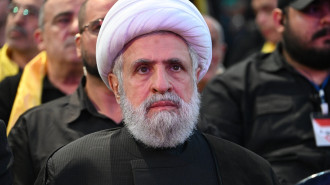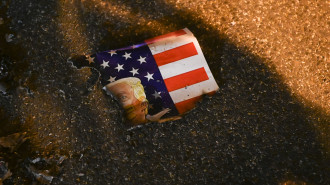
Somalia: Long-awaited elections see youth and women candidates pressing for change

Since 16 July, when the National Independent Electoral Commission (NIEC) in Somalia started receiving candidate papers for the Somali Senate elections (54 seats), hotels in the capital Mogadishu have been buzzing with campaign events for the upcoming elections.
This has been accompanied by a flurry of social media activity as candidates open new accounts to boost their campaigns ahead of scheduled parliamentary and presidential elections. Hope has been reignited in the country that the elections will finally take place, after a delay of two years, and with it comes the dream that young people and women will have a chance to enter the nation's political life.
While election campaign banners fill Mogadishu's streets, a number of young candidates stand out. They aspire to reach both houses of parliament: the National Assembly of Somalia (lower house) and the Senate (upper house).
Many of these young people hope to bring about radical change in the political scene in Somalia - a scene that has become largely viewed as a battleground for senior politicians and tribesmen exclusively. For three decades, the ability of young people and women to participate in politics has been severely restricted.
"Many of these young people hope to bring about radical change in the political scene in Somalia - a scene that has become largely viewed as a battleground for senior politicians and tribesmen exclusively"
It is expected that the parliamentary elections for the Senate will take place in five of Somalia's federal regions on 25 July. After this, Somalis expect to have a clearer idea of the electoral scene and the odds that young people will be able to enter the next parliament.
If the youth contingent wins a reasonable number of the parliamentary seats in the Senate, it will open up the possibility that they could also take seats at the National Assembly (275 seats) in August.
A young candidate with experience
Issa Mahmoud Jouri is one young person who has decided to stand. He announced his candidacy for a seat in the National Assembly last Thursday during an event at the Jazira Hotel in south Mogadishu. He believes that his previous experience working for Mogadishu Municipality as director of the Daynile and Hodan districts (2015 - 2016) have well-equipped him for the position.
|
|
In a conversation with Al-Araby Al-Jadeed, The New Arab's Arabic-language sister publication, Issa says that for decades young people have had no role in politics, which has been dominated solely by tribesmen and senior politicians. This has motivated him to run for a seat in the Somali parliament: he hopes to bring about a radical change in the political life of his country.
Jouri says that the biggest obstacle confronting any young person aspiring to join the parliament is the grip that Somali tribesmen have on power. However, he adds that he has been encouraged to step forward by men from his own clan who want him to represent them politically. In his view, wealth is not a decisive factor in the elections - what is more important is the ability of the candidate to wield influence among the tribesmen and voters and win their favour.
A young unionist candidate
As for Mona Ahla, a young media graduate from Mogadishu University who is also standing for parliament, her motivation to stand lies in her connection to Somali civil society. She is a youth activist and has worked in youth organisations since finishing her studies.
Ahla currently works with 40 local unions, some of which are youth unions, and has many community links, putting her in a good position to participate and contribute politically in the country.
"The main challenges young people face are financial resources and the security situation in Somalia: after you announce that you’re standing you become a target, which creates a tense atmosphere and fear among new candidates"
In terms of the obstacles facing those like her, who want to enter into the electoral contest, Ahla says: "The main challenge young people face are financial resources and the security situation in Somalia: after you announce that you’re standing you become a target, which creates a tense atmosphere and fear among new candidates."
Ahla also notes being challenged by tribesmen, "who don’t think that women should have the same standing as men in politics".
Ahla hopes to win a seat in the parliament, and that her candidacy does not create rifts within her own clan. Even if it does, she is determined to take this step, in order to raise her voice to represent her clan and be a messenger for the youth, who have been ignored for years.
A female candidate running to represent women
Farhia Ali, another female candidate for the parliamentary elections, explains that Mogadishu has witnessed a period of intensive meetings between female leaders in the country. The Ministry of Women and Human Rights Development has set up a centre to monitor and follow the election process for both the senate and national assembly elections in order to ensure that women receive the 30% of seats reserved for them. Women currently make up only 24% of the Somali parliament, across the upper and lower houses.
While Ali lauded efforts to encourage Somali women to participate in politics, she also highlighted the conservative values that these candidates are up against. Many conservative groups in Somalia, such as tribesmen, do not believe that women should be engaged in politics.
Many in Somalia are awaiting the upcoming elections with bated breath, hoping for transparency and fairness, especially those supporting young and female candidates.
This is an edited translation from our Arabic edition. To read the original article click here.
Translated by Rose Chacko.





 Follow the Middle East's top stories in English at The New Arab on Google News
Follow the Middle East's top stories in English at The New Arab on Google News


